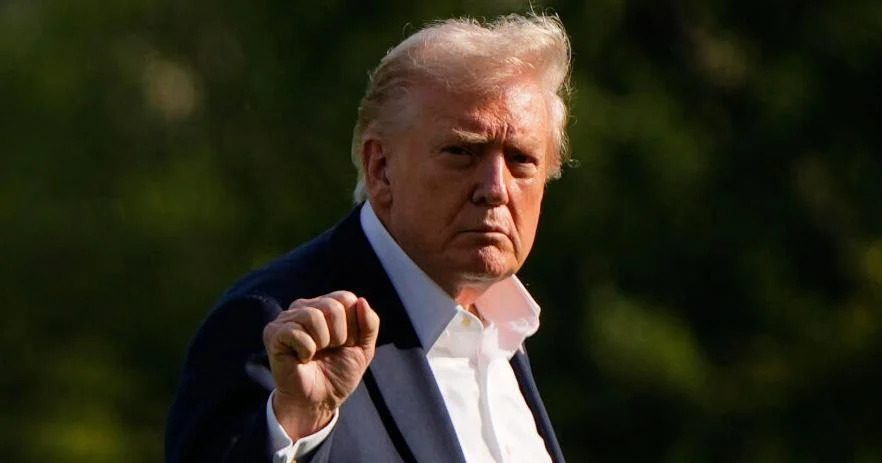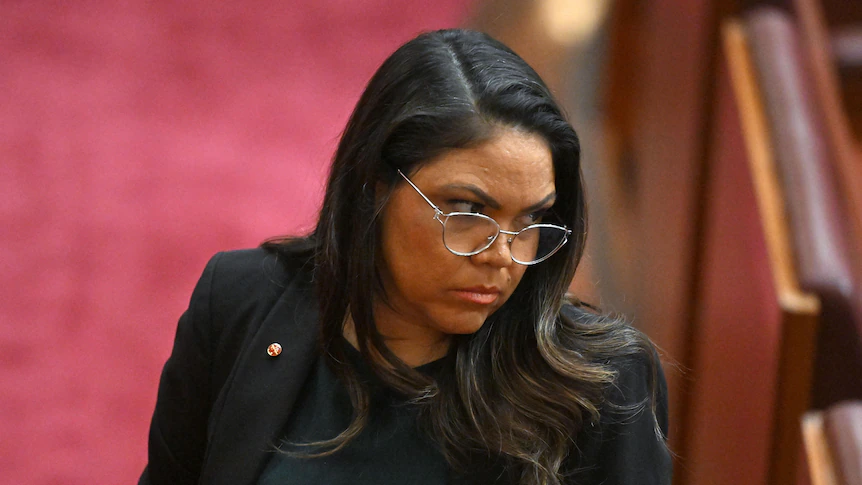
WASHINGTON — The money started drying up quickly, almost as soon as President Donald Trump began issuing his executive orders.
Head Start funds for early childhood programs. National Institutes of Health grants. Funding for the nation’s public libraries and museums. Money from a landmark bipartisan infrastructure law to help schools renovate classrooms and states build electric vehicle charging stations. Federal Emergency Management Agency food and shelter assistance.
“There’s a lot of fear out there,” said Tommy Sheridan, deputy director of the National Head Start Association, whose organization raised early concerns about funding delays that could affect children and families.
While the money is largely flowing again, he said, “Obviously, we need to make sure our funding is reliable.”
The Trump administration stalled, scrapped or withheld billions of dollars so far this year — with as much as $410 billion at risk, by some congressional estimates.
Trump’s funding cuts violate law, watchdog says
Trump’s willingness to order the government agencies to halt spending approved by Congress and signed into law is a violation, according to a nonpartisan government watchdog. It’s creating a crisis on Capitol Hill and beyond, with an undercurrent of deep distrust as lawmakers clash over legislation to prevent a federal government shutdown.
“Every single one of us should be deeply alarmed by the lawless course the administration is charting here,” Sen. Patty Murray, the top Democrat on the Senate Appropriations Committee, said at a summer hearing with Trump’s budget director, Russ Vought, a chief architect of Project 2025.
On the surface, the standoff between Congress and the White House looks like a governmental dispute over federal spending levels.
But from the Department of Government Efficiency’s budget-slashing efforts under billionaire Elon Musk to the budget rescission packages Vought sent to Capitol Hill, what’s unfolding is a deeper debate over the separation of powers — raising questions over what happens if the White House moves more aggressively to cut House and Senate lawmakers out of the federal funding process.
Trump’s Office of Management and Budget directed agencies to prepare for mass firings — reductions in force — rather than simply furloughs of federal workers, in the event of a shutdown.
White House, Congress and the separation of powers
“This is a high point in presidential assertion over the spending power — it might be the highest point ever,” said Kevin Kosar, a scholar at the right-leaning American Enterprise Institute.
While past presidents challenged Congress — Jimmy Carter vetoed dozens of spending bills, and George W. Bush used presidential signing statements to carve out sections of legislation he disagreed with — Kosar said what Trump is doing “really garbles the logic” of the entire budget process.
“The rules don’t really apply much any more,” he said.
It will come to an inflection point on Sept. 30, when Congress must pass legislation to keep the government from shutting down.
Listen now and subscribe: Apple Podcasts | Spotify | RSS Feed | SoundStack | All Of Our Podcasts
Vought’s office did not respond to a request for an interview.
From the pages of Project 2025
Writing in Project 2025, Vought explained “the great challenge” facing a conservative president “is the existential need for aggressive use of the vast powers of the executive branch.”
He said this will require a “boldness to bend or break the bureaucracy to the presidential will.”
Since Trump took office in January, a federal watchdog, the Government Accountability Office, issued a flurry of notices of violations in a rare reprimand of instances where the Trump administration failed to release the money in accordance with the appropriation laws from Congress.
Among the dozens of investigations GAO opened this year, the funding uncertainty around Head Start, the NIH, museums and libraries, energy and transportation infrastructure programs and FEMA are among those deemed violations. More decisions are expected in the days ahead, before the Sept. 30 deadline for the federal government to get certain funds out the door.
Edda Emmanuelli Perez, the general counsel at GAO, which was created more than 100 years ago as a check on federal spending, said presidents have the ability to propose spending rollbacks, so long as they follow the process.
“If Congress then decides, yes, we agree, we’re going to pass a law to cancel the funds, then the funds get cancelled,” she said. “If Congress does not pass it, then that means the president has to, again, go back to the terms of the law and release those funds.”
After Nixon cut funds, Congress created a new law; it’s now being challenged
That’s outlined in the Impoundment Control Act, which Congress approved in 1974 after concerns over then-President Richard Nixon’s refusal to allocate funds to programs he opposed. It requires the White House to notify Congress of its proposed rescissions. Congress then has 45 days, under a fast-track procedure, to vote on the president’s proposal.
This summer, Congress, where Republicans hold the majority, approved Trump’s request to claw back about $9 billion in already approved funding for public broadcasting, including National Public Radio, and certain foreign aid programs, over the objections of Democrats.
Late last month, the White House sent Congress a second rescissions package of $4.9 billion in cuts to USAID foreign aid programs, bumping up against the Sept. 30 year-end deadline. If Congress fails to act before Tuesday, the money would essentially go away in a so-called “pocket rescission.”
“The Trump Administration is committed to getting America’s fiscal house in order by cutting government spending that is woke, weaponized, and wasteful,” the White House said in a message to Congress announcing the rescissions proposal.
“Now, for the first time in 50 years, the President is using his authority under the Impoundment Control Act to deploy a pocket rescission, cancelling $5 billion in foreign aid and international organization funding,” it said.
Republican Sen. Susan Collins of Maine, the powerful chair of the Senate Appropriations Committee, said the administration’s attempt to rescind the funds without congressional approval would be “a clear violation of the law.”
However, the Supreme Court, in a victory for Trump, extended an order Friday allowing the administration to keep the funds frozen.
Love
0
Funny
0
Wow
0
Sad
0
Angry
0
Get Government & Politics updates in your inbox!
Stay up-to-date on the latest in local and national government and political topics with our newsletter.
* I understand and agree that registration on or use of this site constitutes agreement to its user agreement and privacy policy.



